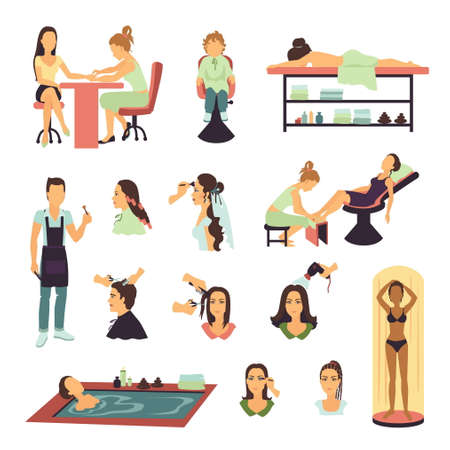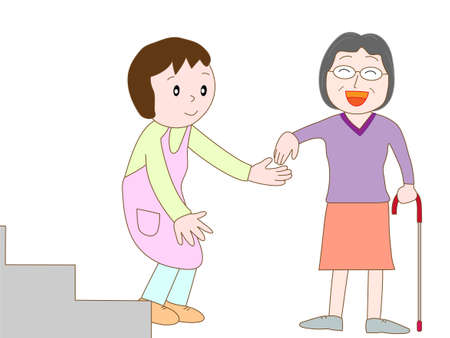Understanding Mother-Child Bonding in Indian Context
In India, the bond between a mother and her child is deeply revered and celebrated across various cultural practices and traditions. From ancient times, Indian society has placed immense value on the nurturing role of mothers, often considering the mother-child relationship as sacred and central to a childs holistic development. Traditional beliefs emphasize early skin-to-skin contact, lullabies, gentle massages with oils like coconut or mustard, and storytelling as key elements that foster emotional connection and trust. These rituals are believed not only to strengthen familial ties but also to ensure the physical and mental well-being of both mother and child. However, with changing family structures and increasing urbanization, modern influences have introduced new challenges and opportunities for fostering this important bond. Contemporary Indian families may face time constraints or lack traditional support systems, making it essential to explore how innovative approaches such as physiotherapy can further enhance mother-child bonding while respecting cultural nuances.
2. Challenges Faced by Indian Mothers Post-Delivery
After childbirth, Indian mothers face a unique blend of physical and emotional challenges that can impact their bonding with their child. These challenges are often intensified by traditional family structures, societal expectations, and cultural practices specific to India. Understanding these obstacles is crucial for developing supportive interventions like physiotherapy that not only aid recovery but also foster stronger mother-child connections.
Physical Challenges
The postpartum period brings various physical issues for Indian mothers, which can hinder daily caregiving activities and bonding moments with their newborns. Common physical problems include:
| Physical Challenge | Impact on Mother-Child Bonding |
|---|---|
| Back Pain | Limits ability to hold and breastfeed the baby comfortably |
| Pelvic Floor Weakness | Causes discomfort, making active involvement in child care difficult |
| Fatigue & Sleep Disturbances | Reduces energy for engaging and responding to the babys needs |
| C-section Recovery Issues | Slows mobility, affects emotional closeness due to pain or restriction |
Emotional and Social Expectations
Mothers in India often encounter intense emotional stress during the postpartum phase. This is amplified by social expectations such as:
- Pressure to quickly resume household duties: Extended families may expect mothers to return to normal routines soon after delivery, reducing rest time crucial for recovery.
- Preference for male children: In some communities, the birth of a girl can lead to disappointment or reduced support, impacting a mothers emotional well-being and her ability to bond with her child.
- Lack of open conversation about mental health: Postpartum depression and anxiety are rarely discussed openly, leaving many mothers feeling isolated.
- Joint family dynamics: Decision-making around childcare is often influenced by elders, limiting the mothers autonomy and confidence in caring for her baby.
The Role of Physiotherapy Amidst These Challenges
Given these circumstances, physiotherapy becomes more than just a tool for physical rehabilitation—it offers emotional support and empowerment. By addressing both body and mind, physiotherapy encourages mothers to regain confidence in their abilities and promotes nurturing interactions with their newborns.

3. Role of Physiotherapy in Postnatal Recovery
For Indian mothers, the postnatal period is a time of physical and emotional transformation. Physiotherapy plays a vital role in helping new mothers recover after childbirth, especially considering the traditional expectations of early mobility and family involvement in India. Through tailored exercises and gentle therapies, physiotherapists address common issues such as lower back pain, pelvic floor weakness, and postural problems that arise due to pregnancy and delivery. These interventions not only restore strength and stamina but also empower mothers to actively care for their newborns. Furthermore, physiotherapy sessions often provide a safe space for women to discuss emotional challenges like anxiety or postpartum blues, which are sometimes overlooked in Indian society. By supporting both physical healing and mental well-being, physiotherapy enables mothers to participate fully in their child’s early development—carrying, feeding, and engaging with their baby without discomfort or fear of injury. This holistic recovery process nurtures confidence and fosters a stronger mother-child bond from the very beginning.
4. Physiotherapy Techniques Tailored for Indian Mothers
In India, physiotherapists understand the importance of customizing their approaches to suit the unique needs of Indian mothers, considering both cultural sensitivities and daily lifestyle. Many Indian families have multi-generational households, and new mothers often rely on extended family support, traditional beliefs, and local practices. Here are some common physiotherapy techniques and exercises adapted for Indian mothers:
Exercises Respecting Traditional Attire and Modesty
Physiotherapists in India design exercises that accommodate sarees, salwar kameez, or other traditional attire. Privacy is prioritized during sessions, and female physiotherapists are often preferred by mothers for added comfort.
Common Physiotherapy Approaches for Mother-Child Bonding
| Technique | Description | Cultural Sensitivity |
|---|---|---|
| Baby Massage Guidance | Teaching mothers traditional baby massage techniques while ensuring ergonomic postures to prevent strain. | Integrates Ayurveda-inspired oils and respects family rituals. |
| Postnatal Yoga & Breathing | Gentle yoga asanas and pranayama tailored for postpartum recovery. | Combines modern physiotherapy with ancient Indian practices. |
| Pelvic Floor Strengthening | Safe pelvic floor exercises taught discreetly for post-delivery healing. | Sessions conducted privately to honor modesty. |
| Kangaroo Care Techniques | Encouraging skin-to-skin contact through safe positioning and movement education. | Respects joint family involvement and encourages father participation when appropriate. |
Adapting Exercises to Daily Routines
Indian mothers often juggle household chores along with childcare. Physiotherapists teach functional exercises that can be performed while cooking, sitting on the floor, or carrying the child — all common scenarios in Indian homes. For example, teaching correct squatting postures (often used in rural settings) or safe lifting techniques helps prevent injuries while bonding with the child.
Culturally Inclusive Communication
Effective communication is key. Physiotherapists use local languages and relatable analogies, involving elders when appropriate to gain family support. This inclusive approach not only enhances compliance but also fosters a nurturing environment where mother and child can bond safely and confidently through every stage of recovery.
5. Encouraging New Age Parenting and Self-Care
In the evolving landscape of Indian families, where the traditional joint family system is gradually giving way to more nuclear setups, physiotherapy offers a unique bridge between old values and new age parenting. For mothers, especially those navigating motherhood in urban India or within smaller family units, physiotherapy becomes an essential tool to nurture both self-care and their child’s development. By integrating physiotherapeutic practices into daily routines, mothers gain access to techniques that not only enhance physical well-being but also promote emotional balance—a vital aspect in managing parenting responsibilities amidst changing societal norms.
Empowering Mothers within Joint Families
Within the joint family system, mothers often juggle multiple roles—caring for children, supporting elders, and managing household duties. Physiotherapy empowers them by providing tailored exercises and relaxation methods that address common issues like postpartum pain, fatigue, and stress. This support enables mothers to participate more actively in their children’s lives, fostering stronger bonds through shared activities such as guided play therapy or mother-child yoga sessions. As these practices are adopted collectively within the family, they reinforce the importance of maternal health as a foundation for nurturing relationships.
Adapting to Nuclear Family Dynamics
As nuclear families become more prevalent in cities like Mumbai and Bengaluru, mothers may face increased isolation and pressure without the extended support system of a joint family. Here, physiotherapy acts as a lifeline—offering not just physical recovery but also emotional resilience. Techniques such as pelvic floor strengthening, breathing exercises, and posture correction empower mothers to prioritise their own health while caring for their little ones. When mothers feel physically strong and mentally balanced, they can engage more meaningfully with their children—helping lay the groundwork for secure attachment and emotional connection.
Promoting Holistic Health for Mother and Child
Indian culture has long valued holistic wellness through Ayurveda and yoga; physiotherapy complements these traditions by offering evidence-based interventions suited for modern lifestyles. Whether it’s teaching a mother how to safely carry her baby using ergonomic principles or guiding her through postnatal rehabilitation, physiotherapy ensures that both mother and child thrive together. Ultimately, by emphasising self-care alongside parenting responsibilities, physiotherapy supports Indian mothers in building lasting bonds with their children—regardless of whether they live in bustling joint households or cosy nuclear homes.
6. Mother-Child Bonding: Real Stories from Indian Households
Across India, countless mothers are discovering the transformative power of physiotherapy in nurturing deeper connections with their children. Take Meena from Pune, who shares, “After my son’s birth, I struggled with severe back pain and fatigue. Physiotherapy not only healed my body but gave me the energy and positivity to play and engage with my child. Our laughter during those home exercises created special memories.”
Similarly, Priya from Chennai recalls her journey: “My daughter was born premature and needed physiotherapy to strengthen her muscles. Our daily sessions became our bonding time—she would giggle as we did gentle stretches together, and I felt proud watching her grow stronger. It brought us closer in ways I never expected.”
In Kolkata, Ananya highlights how group physiotherapy sessions at her local clinic allowed her to connect with other mothers while supporting her child’s development. She says, “We shared our challenges and celebrated small victories together. The community support made me more confident as a mother.”
These stories resonate across urban and rural India, where traditional family values meet modern health practices. Mothers report feeling empowered, both physically and emotionally, as they participate in their children’s growth and recovery journeys through physiotherapy.
Physiotherapy: A Cultural Bridge
Indian mothers often blend physiotherapy routines with age-old practices like baby massage and playful rhymes in regional languages. This fusion not only supports physical development but also preserves cultural heritage, making each session meaningful for both mother and child.
The Road Ahead
As more Indian families embrace physiotherapy, it is clear that these moments of shared care foster resilience, trust, and unconditional love. By prioritising both health and emotional connection, mothers are setting a foundation for lifelong bonds—one stretch, smile, and cuddle at a time.


